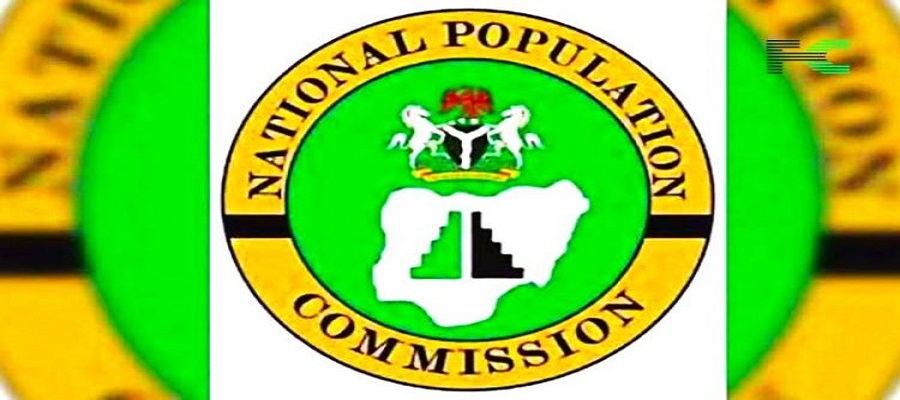News
FG Inaugurates Members of Monitoring, Standardization Panel for NASENI

In its determination to diversify the country’s economy especially away from being dependent on crude oil, President Muhammadu Buhari, on Thursday inaugurated a 9 Member Board Chairmen and 36 Members to assist the National Agency for Science and Engineering Infrastructure (NASENI) in fast tracking its overarching mandate of leapfrogging Nigeria’s technology and engineering for national development.

Buhari, who was represented by the Secretary to the Government of the Federation Mr. Boss Mustapha, at the Headquarters of NASENI, in Abuja, tasked the members to work ingeniously across the 9 research and development institutes to see Nigeria truly becoming one of the most industrialized nations in the world.
The Board Chairmen for the 9 Institutes include: Prof. James Momoh, Chairman: Electronic Development Institute, Awka, Engr. Mustapha Balarabe Shehu for: Advanced Manufacturing Development Technology Institute, Jalingo, Prof. Peter Azikiwe Onwualu: for Engineering Materials Development Institute in Akure, Engr. Zakari Osagye Ayitogo, for: Hydraulic Equipment Development Institute, Kano, Prof. Joseph Atubokki Ajenka, for National Engineering Design Development and Prof. Abubakar Sani Sambo, for Power Equipment and Electrical Machinery at Okene.
The others are: Prof. Olufemi Adebisi Bamiro: Prototype Engineering Development Institute, Ilesha, Prof. Muhammed Hamisu Mohammed for Scientific Equipment Development Institute and Engr. Kashim Abdul Ali, Scientific Equipment Development Institute, Minna.
The Chairmen with their 36 members were charged to evaluate all technologies and innovations coming out from NASENI’s research institutes, to make them conform to best global standards, to make them ready for commercialization and to industrialize the Nigerian economy as quickly as possible through mass production of standardized machineries.
According to him, the need to diversify the economy was a deliberate action by the present administration and hence the current massive investments in STIs and products that could boost productivity Nigeria’s economy just as obtainable in Japan, China, India, US and Germany.
Such efforts had led those countries to become first class in terms of world economic growth and development, he added.
On the federal government’s support for NASENI, Buhari acknowledged that the agency has the competence and capacity to diversify the economy, through its technologies and innovations, adding that the recently reviewed statutory funds will kickstart NASENI’s drive to achieve its mandate.
Therefore, he underscores and mandates that all the agency’s statutory funding mechanisms be released to enable it achieve its mandate of providing capital goods, research and development activities to transform the economy using science, technology and innovations.
Speaking further, Mustapha said the panel would kick-start the effective and efficient implementations of projects of NASENI and the tasks of the technical board include enabling the Federal government to monitor the deliverables from the Agency in order to make it more responsive to meet the developmental and socio-economic needs and objectives of the country.
Dr. Maurice Mbaneri, who stood for the SGF, while applauding the agency, said its efforts so far had been remarkable, explaining that the agency has continued to prove its capabilities and commitment to the progress of the nation’s development and sustainable growth through its diversified STIs across sectors of the economy.
He said: “President Buhari, has approved the composition of these technical panels for deployment and application of appropriate science and engineering technologies because this sector is the obvious solution to the myriads of our socio-economic problems in Nigeria.”
In his welcome address, the Executive Vice Chairman/CEO of NASENI, Prof. Mohammed Haruna, said the setting up of the Boards as approved by President Buhari, was not only in line with the Establishment Act of the agency, but also the implementation of the recommendation of inter-ministerial Ad-hoc Committee of the NASENI governing board.
While appreciating President Buhari for repositioning the agency in line with the dreams and aspirations of the founding fathers, Haruna, noted that since the establishment of NASENI, about 30 years ago, it is this administration that has demonstrated sufficient political will by approving full implementation of the agency’s mandate which include, strategic policy objectives, institutional structures; funding and financial implementation.”
The President, who doubles as the Chairman of NASENI Governing Board, acknowledged that he has fulfilled his promises of repositioning the agency to deliver globally competitive products and services, adding: “This is in line with the administration’s economic diversification programme and commitment to transit the country from a consumer to a manufacturing economy.”
News
Mysterious Illness Kills 50 People within Hours of Symptoms, Doctors Raise Alarm

A mysterious illness killed more than 50 people in the Democratic Republic of Congo (DRC), with most victims dying within 48 hours of showing symptoms, health officials have reported.

Pic Credit: Daily Sabah
The outbreak, first reported on January 21, has resulted in 419 cases and 53 deaths.
The World Health Organization (WHO) has classified it as a significant public health threat, citing concerns over its rapid progression and fatality rate.
Suspected origin and early cases
Authorities believe the outbreak started in the town of Boloko, where three children reportedly ate a dead bat.
The children developed severe symptoms and died within two days.
Medical experts suspect the illness is a form of hemorrhagic fever, which can cause fever, internal bleeding, headaches, and joint pain.
“That’s what’s really worrying,” said Serge Ngalebato, medical director of Bikoro Hospital in the DRC, referring to the disease’s speed and severity.
Ebola, one of the most well-known hemorrhagic fevers, has not been detected in this outbreak, according to initial testing.
A second wave of cases emerged in the town of Bomate on Feb. 9. Authorities have tested samples from 13 patients, all of which returned negative results for Ebola and Marburg virus.
However, some samples tested positive for malaria.
The WHO reported that the fatality rate of the illness is 12.3%, significantly higher than the early fatality rate of COVID-19.
Experts warn that the outbreak could spread further due to the region’s remote location and fragile healthcare system.
News
NPC Warns Nigerians to Beware of Fake Recruitment Website

National Population Commission (NPC), has alerted the public to a fraudulent website https://npc-career.allprogram.site/job created by individuals with malicious intent.

Erelu Taibat Yemi Oloruntoba, director, Public Affairs, NPC, said in a statement that the fake site falsely claims to facilitate recruitment for the 2025 Population and Housing Census, aiming to defraud unsuspecting citizens.
“We want to state unequivocally that the Commission is not currently conducting any recruitment for Ad-hoc staff related to the upcoming census. President Bola Ahmed Tinubu, GCFR, has stated that a committee will be established to align the census budget with the government’s present financial situation before issuing a proclamation for the conduct of the upcoming biometric Population and Housing Census,” the statement outlined.
It, therefore, warned Nigerians to be aware that when there is a date for the census and it becomes necessary for the commission to recruit ad hoc staff for the exercise, it will be officially announced through national media outlets, as well as the NPC’s verified social media platforms and website.
It urged the general public to disregard the fake website and its misleading information to avoid falling victim to scams.
The statement avowed that NPC is actively investigating the creators of this fake website, adding, “we encourage everyone to seek accurate information regarding the NPC’s activities from our official social media handles and website.”
According to the statement, NPC is committed to keeping the public informed about developments concerning the first biometric Population and Housing Census in Nigeria.
“We appreciate your support in ensuring a successful census exercise,” the statement said.
News
Fuel Scarcity Looms as Marketers Threaten Strike over N100Bn Debt

Independent Petroleum Marketers Association of Nigeria (IPMAN) has issued a seven-day ultimatum to the Nigerian Midstream and Downstream Petroleum Regulatory Authority (NMDPRA) to pay outstanding bridging claims amounting to N100billion or face a nationwide strike.

In a communique released on Monday, the association expressed growing frustration with the NMDPRA’s failure to fulfill its financial commitments, despite repeated assurances.
The statement, signed by Yahaya Alhassan, chairman of the IPMAN Depot Chairmen Forum, highlighted that the NMDPRA had previously promised to resolve the debt but has consistently reneged on those promises.
According to the IPMAN communique, the NMDPRA had made a public commitment to pay the bridging claims within 40 days, following a stakeholders’ meeting where the Nigerian Association of Road Transport Owners (NARTO) demanded payment before halting a planned strike action.
The meeting, which involved high-ranking government officials such as Mal. Nuhu Ribadu, national security adviser, and Mr. Adeola Ajayi, DG DSS, was seen as an opportunity for resolution.
However, 40 days have since turned into several months without any sign of payment. IPMAN noted that this continued delay has severely impacted the operations of its members.
“One of those promises was made by the NMDPRA at the stakeholders meeting on the eve of the last strike action declared by NARTO. At that meeting, the NMDPRA assured us that the bridging claims would be paid within 40 days, but now months have passed, and there is still no hope of payment,” the statement read.
IPMAN also lamented the devastating economic consequences of the delayed payments, noting that many of its members have been forced to close their businesses, lay off staff, or, in some cases, suffer personal tragedies due to the financial burden.
“Many of our members have lost their businesses to commercial banks as they are unable to meet loan repayment obligations due to the unfulfilled payments of bridging claims,” the statement added.
In addition to the outstanding claims, IPMAN accused the NMDPRA of imposing “abnormal levies” on its members. One of the most contentious issues raised was a 5 per cent commission on petrol station sales, which IPMAN described as an illegitimate imposition.
“When has the NMDPRA turned itself into a real estate agent, collecting a commission on sales of retail petrol outlets?” the communique questioned.

 General News3 days ago
General News3 days agoSANEF Appoints Uche Uzoebo as New Chief Executive Officer

 E-Financial3 days ago
E-Financial3 days agoFlutterwave Visits Tinubu, Seeks Support to List on NGX

 General News3 days ago
General News3 days agoAgain, Gambaryan, Binance Executive Accuses 3 Lawmakers, NSA of Demanding $150m Bribe

 Telecom3 days ago
Telecom3 days agoATCON Warns of Nationwide Telecom Blackout over Diesel Shortage

 Telecom3 days ago
Telecom3 days agoGlobacom Continues Upgrade of Network Infrastructure Across Nigeria

 Telecom2 days ago
Telecom2 days agoSpaceSail, Kuiper Battle Starlink for Souls of Customers

 E-Financial3 days ago
E-Financial3 days agoSERAP Drags CBN to Court over ATM Fee Hike

 News3 days ago
News3 days agoNITDA Inaugurates Technical Working Group to Drive Nigeria’s Digital Sovereignty



























